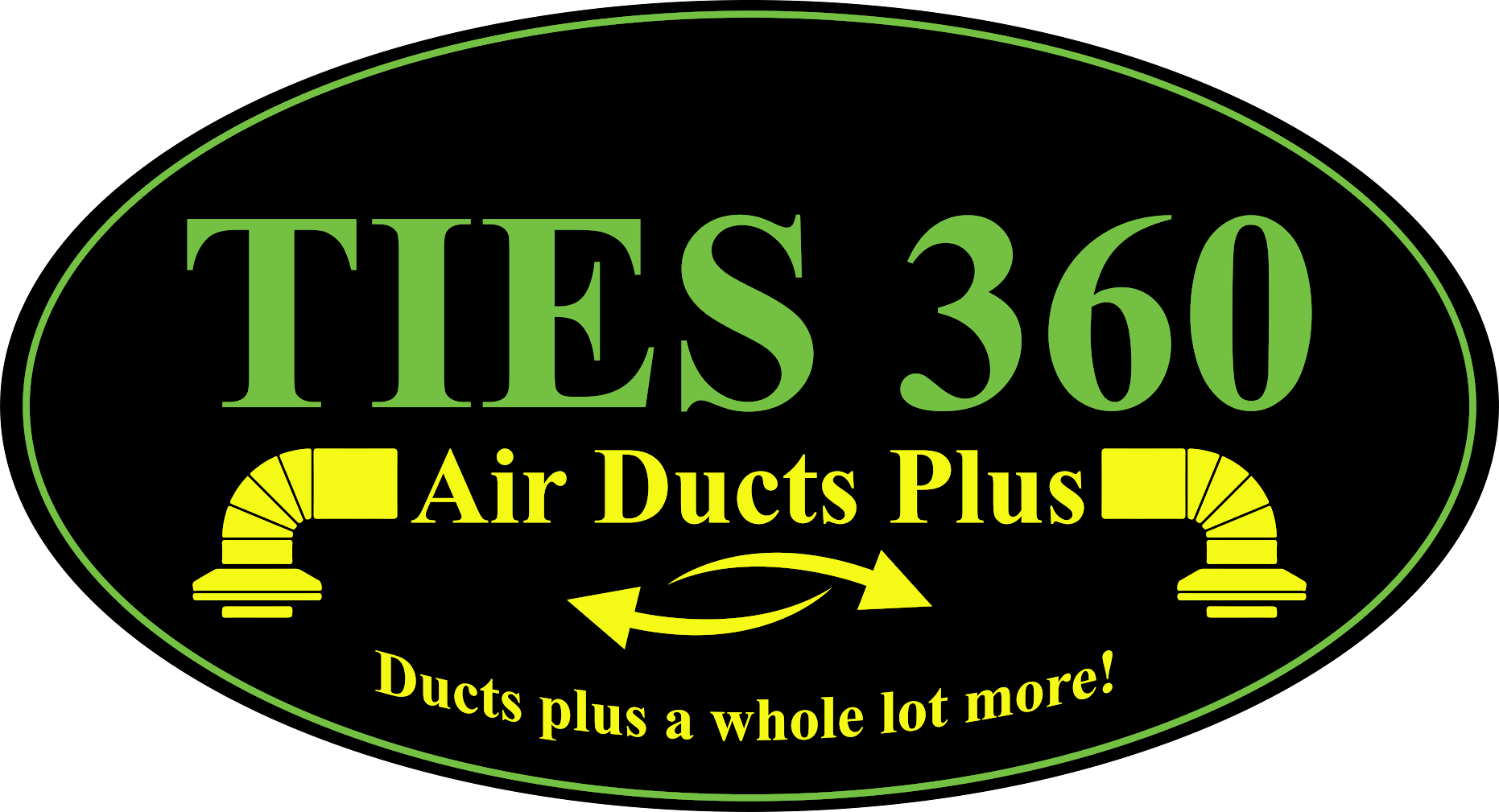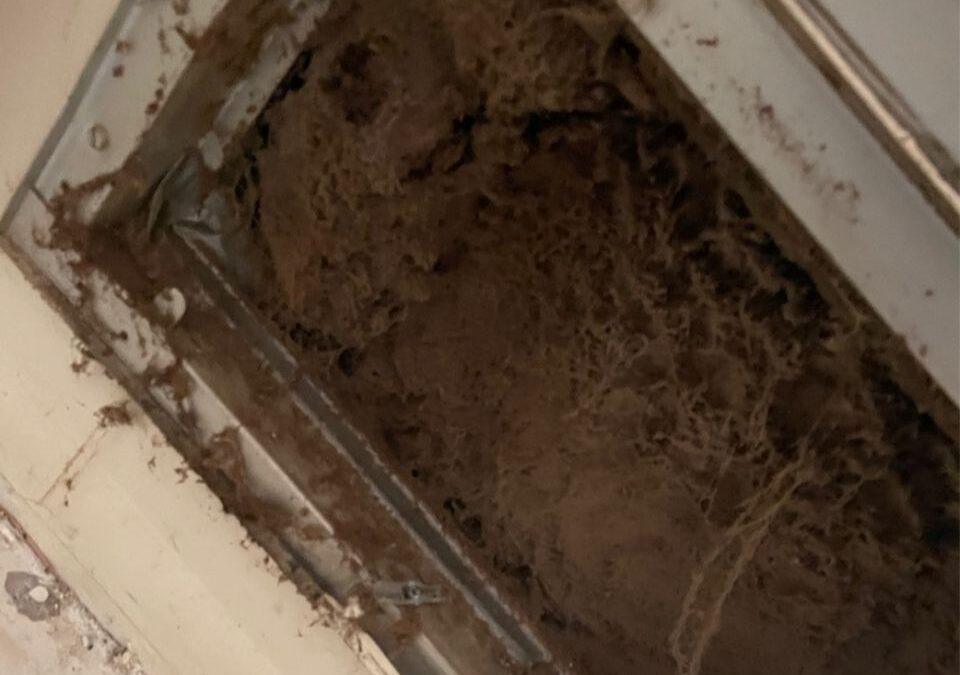When hurricane season hits, most homeowners scramble to focus on boarding windows and stocking up on supplies.
However, one area that homeowners often overlook is the HVAC system, specifically, the air ducts. Hurricanes can create conditions that can lead to mold growth in your ductwork, impacting both indoor air quality and your system’s performance.
Here’s what every homeowner should know to prevent mold issues before and after a storm.
How Hurricanes Contribute to Mold Growth
The high humidity and heavy rainfall that come with these storms create ideal conditions for mold to thrive. Whether it’s from flooding, roof leaks, or moisture seeping through the foundation, any unchecked water exposure can feed mold spores and allow colonies to form quickly.
Once mold begins to grow, it spreads fast, especially in dark, enclosed spaces like your HVAC system. Mold can start forming within 24 to 48 hours of moisture exposure, so it is important to act fast once you notice any signs of water damage.
How Hurricanes Affect Your HVAC System
During a hurricane, your HVAC system is at risk of exposure to excessive moisture and debris. Outdoor units can take on water or get clogged with storm-related particles, while indoor components may also suffer if flooding or high humidity enters the home.
Power outages only make matters worse, as they prevent the system from properly removing moisture from the air. As moisture sits inside the ductwork, it creates the perfect environment for mold to grow.
Air ducts are especially vulnerable because they’re tough to inspect and slow to dry without forced airflow. Debris carried by storm winds can end up in the ductwork, where it combines with moisture to form a breeding ground for mold. If mold begins to grow inside the ducts, it can spread throughout your home whenever the system runs. Some common signs include a persistent musty odor, visible mold around vents, and increased allergy-like symptoms indoors.
How to Prepare Your HVAC System Before a Hurricane
Taking preventative steps to hurricane-proof your home can save you time and money later. If a hurricane is in the forecast:
- Turn off the power to your HVAC system
- Cover outdoor units with a breathable, weather-resistant cover to protect from debris
- Inspect seals and duct connections to minimize moisture intrusion
- Clean or replace filters to ensure optimal airflow
Routine maintenance throughout the year also plays a big role. A well-maintained system is less likely to develop moisture problems during extreme weather.
Post-Hurricane Actions to Prevent Mold
After the storm, act quickly to minimize moisture and reduce the risk of mold growth:
- Remove standing water in and around your home immediately
- Use whole-home dehumidifiers and fans to dry affected areas
- Check for any visible leaks or water damage in ceilings, walls, and around vents
- Have a licensed HVAC technician inspect your air ducts and system
Be sure to maintain an indoor humidity level between 45% – 55% is key. Keep windows closed during humid days and make sure your home is properly ventilated to prevent lingering moisture.
Why You Need a Professional Air Duct Cleaner for Mold in Florida
If you suspect mold in your HVAC system, especially after a storm, bring in professionals. Mold remediation specialists can safely remove contaminated material and clean affected areas. HVAC experts like Ties360 can inspect your ductwork, clean the system, and identify any areas where moisture could be entering.
FAQs
Can mold in air ducts cause health issues?
Yes, mold in air ducts can lead to health problems such as respiratory issues, allergies, and asthma.
How can I tell if there’s mold in my HVAC system?
Common signs of mold in your HVAC system include a persistent musty odor, visible mold growth around vents or ductwork, and an increase in allergy-like symptoms indoors.
What should I do after a hurricane to prevent mold growth in my ducts?
After a hurricane, promptly remove standing water, use dehumidifiers and fans to dry your home, and inspect for leaks or water damage. Contact a licensed HVAC technician to inspect and clean your ductwork to prevent mold development.
Should I hire a professional for mold removal in my HVAC system?
Yes, hiring an HVAC cleaning professional in Florida is advisable to safely remove mold and clean affected areas. Professionals have the expertise to ensure thorough cleaning and prevent mold from spreading throughout your home.
Wrapping Up
While hurricanes are known for their immediate damage, their hidden impact on your HVAC system shouldn’t be ignored. Moisture and debris can easily lead to mold growth in air ducts, compromising both your air quality and your system’s efficiency.
The good news is that with simple preventative steps and quick action after a storm, you can protect your HVAC system and your home. Stay prepared, stay informed, and make HVAC maintenance part of your hurricane prep checklist.
Get the services of a professional HVAC cleaner to keep your air ducts mold-free after a hurricane!

